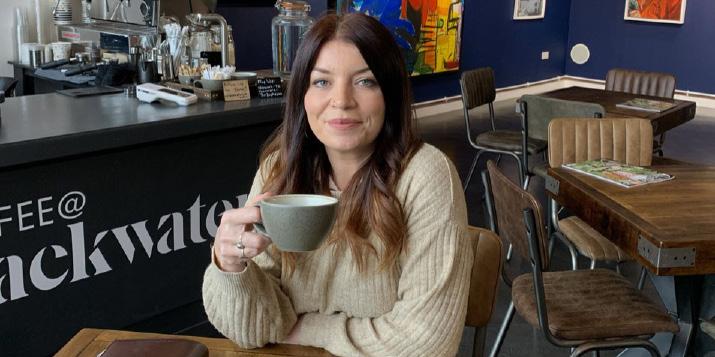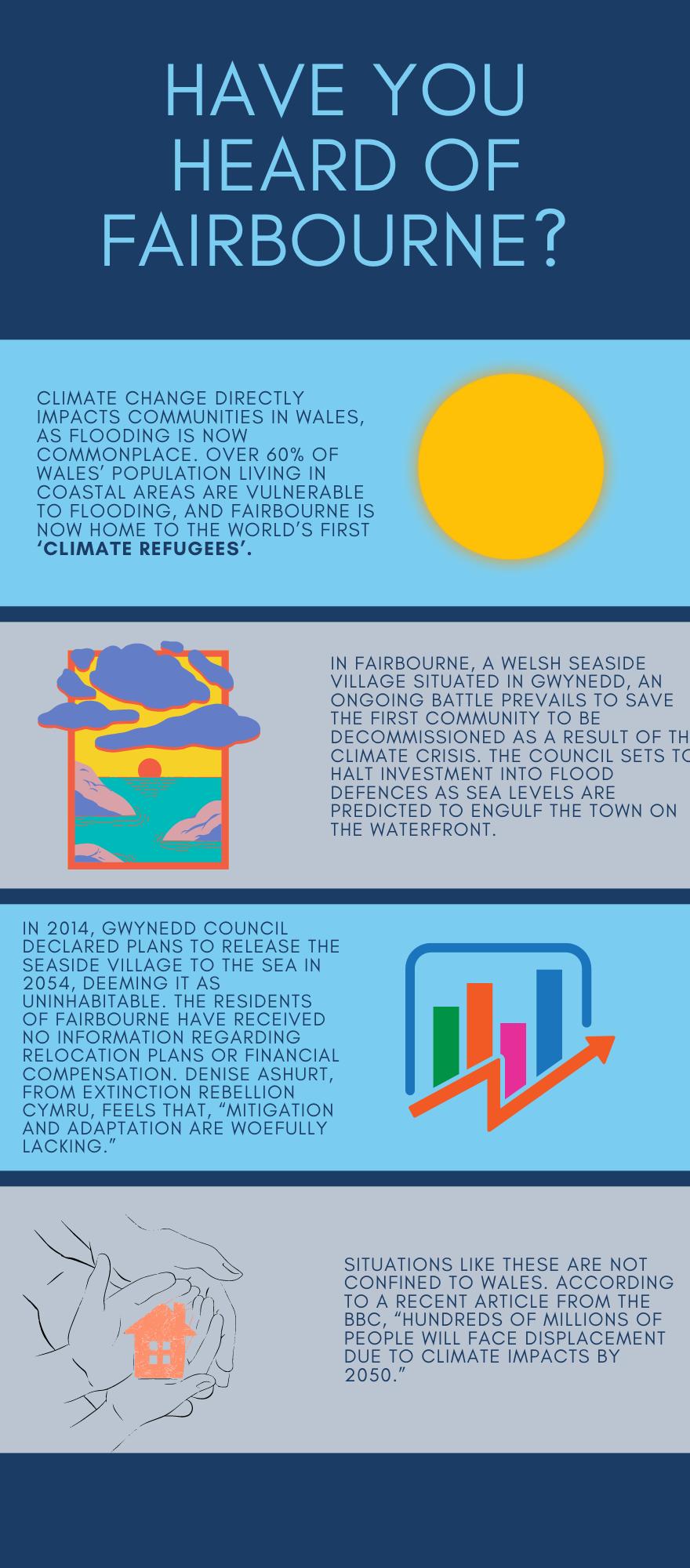Alt.Cardiff
January 2023 - Issue 1 If it’s offbeat and in Cardiff, then it’s here
Home is where the heart home insurance is. And other stories in Cardiff
The social issue


January 2023 - Issue 1 If it’s offbeat and in Cardiff, then it’s here
Home is where the heart home insurance is. And other stories in Cardiff

‘Pay it forward’ started as a goodwill gesture, yet Atma Lounge uses trend to feed those in need as the number of people in “I’m choosing between paying my bills and feeding myself” situations increases.
You may have heard of a ‘pay it forward’ scheme, which has been a popular trend among coffee shops in the UK, whereby you pay for the coffee of the next customer. While it started as a goodwill gesture, Atma Lounge’s ‘buy one feed one’ scheme adds £2 to your bill, which subsidises a meal for someone struggling to afford the basic essentials.
Offering mostly Indian cuisine, Atma Lounge on Queen Street hands out 30 free curries a day as part of the scheme. Café owner, Gopi, said the buy one feed one initiative started just after lockdown, but continued as the cost of living crisis is causing food poverty to worsen.

“We decided we wanted to use this space as a meal distribution hub, not just a cafe” she said proudly. A poll carried out by Opinium revealed that one in six people in Wales are skipping meals to make enwds meet. Gopi is expecting the number of food packages to skyrocket
Young people in Wales and Welsh speakers want the BBC to reflect their values, as shown by National Museum Cardiff’s new exhibition. BBC 100 in Wales chronicles the history of the BBC with Welsh audiences to mark the centenary in Wales.
Young curators want the BBC to make improvements, as one part of the exhibition is dedicated to critiquing the BBC’s impartiality and exploring how it can adapt to the ever-changing media landscape.
The segment has been co-developed by Amgueddfa Cymru producers, a network of young people aged 16-25 from across Wales who collaborate with the museum to develop events. Robert Oros, an Amgueddfa producer, said the BBC needs to change the way issues are covered to stay relevant.
For example, the exhibition highlights how Prince Philip’s death was given 20 hours of airtime, while three hours were spent covering COP26.
Kate Woodward, the museum’s youth engagement facilitator, says “We found in the development of the exhibition that there was more to the BBC than nostalgia.”
The Trussell Trust, who oversee Cardiff Food Bank, reported ‘record breaking’ levels of need. In the last six months, 320,000 people have resorted to food banks for the first time, placing increasing pressure on charities.
Emma Shephard, Cardiff Food Bank’s project manager, said that donations aren’t going to keep up with demand. She said, “When stock is running low we have to buy food, that’s increasing as demand goes up.”
At Atma, people just come in, no questions asked, Gopi explains. “Because it’s a café, it doesn’t have that charity atmosphere. All customers are treated the same.”



the cost of living crisis, self-care is of increasing importance, according to a nail salon which says it is busier than ever. While some view nails as a ‘little luxury’ on a special occasion, for others the service is an integral part of their routine. The owner of Fleur Studio, a salon in Cardiff city centre, said, “Over 80% of our clients have had treatments with us previously.”
On most streets in Cardiff there is a salon or two you can pop into, although it can be difficult to get an appointment, with bookings scheduled weeks in advance.
In a recent interview nail technician, Louise Mallet, told ITV Wales that while getting your nails done “isn’t a necessity…for a lot of my clients it is part of their wellbeing.”
According to a report by the ONS, personal wellbeing has seen a steady increase this year. Despite cutbacks, many view this service as an investment. Molly McCheyne, a student who regularly frequents the nail salon, said openly, “The funny thing is, if someone said ‘hand over £40’, I’d say I can’t afford it.’”
 Kimberley Lewis
Kimberley Lewis
After working for over a year as the director of Blackwater Gallery in Cardiff, 38-yearold council estate-born mum, Kimberley Lewis, breaks classism within the art world. She invites the local residents living in Cardiff Bay to attend events at the gallery free of charge, eager to ensure that Blackwater is viewed as more than “just a gallery.”
Very few people from a working class background manage to infiltrate the art world, says Kimberley, but she has broken that mould. Originally from Aberystwyth, brought up by a single mum, she went on to study fine art, and knows all too well the inaccessibility which surrounds the art industry.

“The events have been well received by the local community, although that might have something to do with the free glass of prosecco on the way in,” she chuckled. It is a gallery which showcases contemporary artwork from both emerging and established artists not confined to Wales.
“The events have been well received, although that might have something to do with the free glass of prosecco on the way in”
She has been the director of Cardiff Bay’s Blackwater Gallery for 18 months, and a recognition of her working class roots has enabled her to approach the running of the gallery in a nuanced way. The gallery is situated in the heart of a housing estate, exposing people to art who otherwise may not have had the means to experience it.
Kimberley has always had a passion for art, and thanks to her supportive mum, she was able to pursue a career she loved. “My mum has always allowed me to make my own decisions in life. I think parents often discourage their children from studying art because they think they won’t get anything out of it. I felt like I had to prove a point.”
Adding colour to the community Kimberley’s management of Blackwater Gallery seeks to make the artistic scene less daunting. From free exhibitions, to live music events, to coffee mornings; there is something for art enthusiasts and novices alike.


“We are the only commercial space on Prospect Place. I felt it was our responsibility to offer services to the residents,” Kim said. After a conversation six months ago with the gallery team about how to encourage more people inside, they sought to create more events and change the atmosphere from cold and stark to warm and welcoming. “Before it was ‘just an art gallery’ but now it is a community space,” she said proudly.
Prior to Kimberley’s current role, the mum of four experienced the challenges of balancing motherhood and keeping hold of a job.
Through the creation of the new mums club every Wednesday at 10am, Kimberley wants to provide people with the support she failed to receive when she was a new mum.
“When you have a newborn, motherhood is a lonely time,” Kim said. “I wanted to create a place for mums to come and socialise. There are 900 apartments in Prospect Place and there are lots of mums on maternity leave, whose pay has already been cut.”
This gallery offers a free service to the community. “It’s not the time to charge people extortionate amounts of money,” Kim said.
The gallery director has future plans to continue proving that irrespective of your familiarity with the artistic sphere, art is for everyone world.”
‘I wanted to make something of my life in the art world’

How flooding will affect home insurance.
Afew years ago Denise Ashurst, a member of Extinction Rebellion Cymru, decided to buy a house in Cardiff. While browsing housing websites, Denise noticed things that didn’t add up. “Some properties were very recently done up with brand-spanking-new kitchens and yet the price seemed suspiciously cheap,” she says.

Denise was aware that flooding in Wales has been a regular occurrence in recent years and considered the implications this would have on insuring the property she was looking to buy. She said, “I started looking at flood maps thinking, ‘If I’m going to buy a house, where am I going to be safe?’”
flooding. In accordance with current housing development trends, up to 20,000 houses in the UK are set to be built on flood risk areas this year alone.
Rhys Griffith, senior communications officer at Natural Resources Wales, said that climate change is a vital consideration in much of their current work. The NRW has made valiant efforts to instigate flood defences and management systems through their Flood Risk Management projects.
Rhys said, “We are unable to continue defending against the risk presented by climate change. In vulnerable locations we will have to give serious consideration to adaptation or retreat.”
The Welsh government has now produced measures regarding adapting to climate change, saying that, “It is imperative that plans and investment projects consider the changing risks over the coming century.”
Unbeknown to some homeowners residing in flood risk areas, while insurance premiums are relatively steady at this current time, there is a slow transition to risk-reflective pricing for household insurance.
Wales has seen its fair share of flooding in recent years, and in response the Welsh government, after having declared a climate emergency in 2019, plans to invest £238 million to deliver flood and coastal erosion commitments.
While most populated areas benefit from a national network of flood defence infrastructure, climate change is posing an increasing threat for those living on the coast. For the 245,000 Welsh properties at risk from flooding, the question remains as to how the climate crisis will influence the future of home insurance in high risk areas.
According to the British Insurers Brokers Association, of the 28 million properties in the UK, 1 in 6 properties are at risk from
The government has long been working alongside insurers to provide reinsurance coverage for properties in high risk areas, which seeks to keep householders premiums at a minimum. For the time being.
treading water Referral to food maps and assessing the risk before covering a property is now commonplace for insurers, who are increasingly vigilant of properties developed on flood plains.
Communications officer at the Nationwide head office in Swindon said when people go through mortgage applications they have checks with solicitors regarding flood maps, as properties built in high risk areas are given a different treatment. She said, “It is more of a regular procedure as the damage it can do financially is huge.”
Throughout the home buying process adequate measures are in place to ensure homeowners are well informed, and it would be reasonable to assume that insurance
“If I’m going to buy a house, where am I going to be safe?”
are well prepared for the risks imposed by sea level rise, yet it seems that this is unchartered territory. Upon contacting multiple insurers, Admiral was one of the only companies to offer a response.
James Carnduff, head of communications at Admiral, said they would, “Struggle to answer questions regarding the current and future state of home insurance in Wales.” Like many insurance companies contacted, enquiry was met with a referral to the Flood Re scheme.
Created in 2013, the Flood Re scheme is a joint initiative between the UK government and insurers, providing insurance coverage for domestic properties situated in high risk areas.
The aim of the initiative, which runs until 2039, is to ensure that homeowners see little rise in their insurance premiums regardless of location. However, upon its end date, Flood Re advises that, “Insurers offer policies based on actual risk to property.” Going on to state that some homes may be uninsurable in the coming years.

Some homeowners may benefit from this scheme, as when buying home insurance the insurer may pass the flood risk element of the policy to Flood Re at a fixed price. In turn meaning if a claim is made for flooding, the insurance company will pay and later be reimbursed.
However, it is not applicable to homes built before 2009, indicative of the principle of avoiding development on areas of an unacceptable risk. Nick Green, a financial writer for Unbiased, a website which connects financial experts with clients, said that, “The greatest factor affecting premium price is where your home is located.”
The future of home insurance in high flood risk areas remains uncertain, but one thing which is certain, however, is that while the premiums in Wales have seen a steady increase of 1.3% each year, this trajectory is set to skyrocket.
When the Flood Re scheme dries up in 2039, flood insurance will be an unregulated free market.
It seems that retreating to the coast for peace of mind actually requires mindful consideration, as purchasing properties in vulnerable areas is becoming a risky business. Due to Denise Ashurst’s environmental expertise, she was able to find the ideal insurable property, but it wasn’t plain sailing.